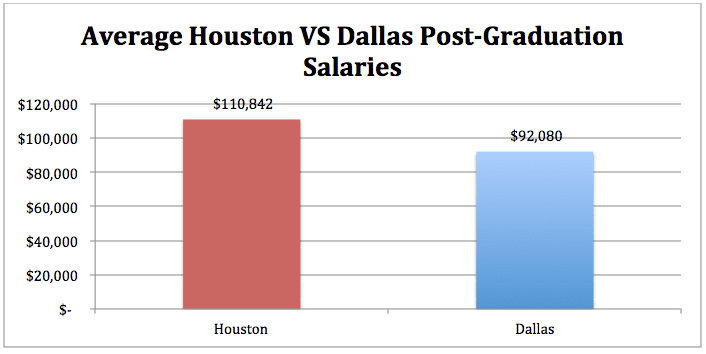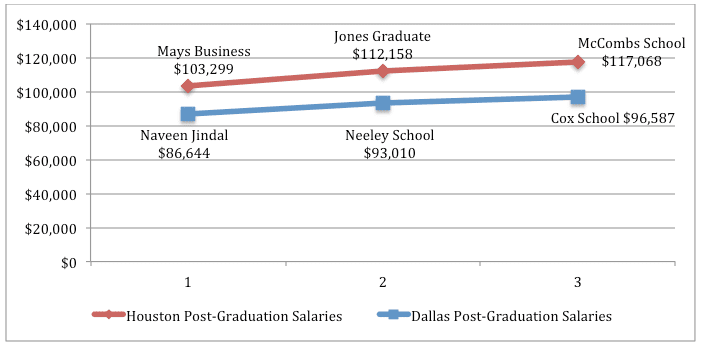MBA Jobs: Accounting Manager

If there is one thing that unites all businesses, whether they are Etsy storefronts or multinational conglomerates, it’s that everyone needs to know how much money it has coming in and where it is going. At large companies and firms, this responsibility falls onto accounting managers. If you are someone with an eye for detail who knows their way around a budget, you might be an excellent fit for this job.
What Is an Accounting Manager?
The accounting manager is, largely, the head of a company’s accounting department. With the assistance of a small staff, the accounting manager keeps track of an organization’s finances and makes sure that the organization is following all necessary financial laws.

Accounting managers prepare reports for executives, letting them know where they are in relationship to their monthly, quarterly, and annual goals. Accounting managers also help to forecast the company’s financial future.
The following represent a few key responsibilities of accounting managers:
- Conducting audits
- Planning annual budgets
- Evaluating financial data
- Defining accounting policies
- Establishing financial standards
Accounting Manager Salaries
According to Glassdoor data, the average annual pay for an accounting manager is $88,160. Accounting managers can also earn an average of $8,426 in cash compensation. Compensation can range from $2,120 to $23,206, depending on the company, background, and academic experience. This generally translates to higher salaries for MBA grads.
For instance, accounting managers at EY (Ernst & Young) will likely earn over $100,000 on average, according to PayScale data.

Where Do You Start?
Candidates for accounting manager positions must have at least a BA/BS in Accounting or Finance. Most positions require candidates to be licensed Certified Public Accountants, or CPAs. This is not an entry-level position; businesses generally expect candidates to have had some previous supervisory experience.
Given the nature of this position, ideal candidates are ethical and able to think critically. Small errors can cost either a client or a firm a considerable amount of money, so it is essential that accounting managers are thorough in their work, always ensuring that their records are accurate and complete.
In addition to the technical skills, accounting managers need to have excellent written and interpersonal skills, because they are required to manage staff, which entails interactions with a wide variety of people.
One way to gain the skills needed for this position is to get a MBA from a top-notch program. We’ve outlined three programs, which provide the skills needed to be a successful Accounting Manager that stands out from the pack.
University of Texas’s McCombs School of Business
The McCombs School of Business at the University of Texas at Austin is home to one of the country’s finest accounting programs. Students can gain considerable accounting knowledge while expanding their management abilities. They will be able to do this while living in Austin, one of the country’s most livable cities.
University of Illinois – Urbana-Champaign’s Gies College of Business
Students in the Gies College of Business at the University of Illinois can develop their financial skills in the college’s flexible MBA program. The training will prepare graduates to take on the role of accounting manager at firms of any size.
Brigham Young University’s Marriott School
Among the top business schools in the United States, the Marriott School at Brigham Young University does not get its fair share of attention, which is unfortunate as it is home to one of the country’s top accounting programs. MBA students can go on the Finance track, which will prepare them for their futures as accounting managers.
By the Numbers: The World’s Most Valuable MBA

There are many different ways to define “lucrative”—so when trying to find the world’s most valuable MBA degree, there are a few different metrics you can use to draw a conclusion. Lucky for us, the new Financial Times global MBA ranking manages to list the world’s top MBA programs in (almost) every way imaginable, including highest weighted salary, salary increase, and value for money. Sounds lucrative to me! Continue reading…
Business School Degree Cheat Sheet: What Type of Degree Should You Get?

An MBA is the most common type of master’s degree for b-schoolers, as it encompasses a vast array of skill sets and opens the door to roles in a multitude of industries. Though the MBA is versatile, there may be another high-level graduate degree that is better suited to your individual needs. No need to go cross-eyed looking through each school’s offerings to figure out which degree is best for you. We’ve created a cheat sheet to help you find out what type of business school degree is right for you.
The Five Most Valuable Online MBAs

Choosing an online MBA program isn’t easy. Not only do you need to look at rankings, but you also have to look at what the program offers and how affordable it is. After all, the goal of an online MBA is a great return on investment. So, how do you find the most valuable Online MBA programs?
We’ve searched through the U.S. News and World Report on the “Best Online MBA Programs” to find which ones can give you the best experience at the best cost.
The programs on this list rank in the top 25 “Best Online MBA Programs,” and cost under $1,400 per credit.
The Five Most Valuable Online MBA Programs
Indiana University
Tied for first as the best online MBA program in the country, Indiana University’s Kelley School of Business is also affordable.
The Kelley Direct Online program offers the ultimate in flexibility. Students can take between two to four years to graduate and tailor their classwork to their goals. Online MBA students will cover such topics as business law and ethics, economics, marketing, finance, operations, information technology, and project management. They’ll also have the opportunity to study abroad in one of Kelley’s global hubs located in Botswana, Brazil, China, India, Myanmar, South Africa, and Cuba.
- Cost: $1,330 Per Credit (out-of-state)
- Ranking: #2
Arizona State University
Ranked as the 5th best online MBA program in the U.S., Arizona State University’s W.P Carey School of Business won’t break the bank either.
The Online MBA at ASU is designed to work with students no matter where they live. The program is incredibly flexible with just five weeks per class and 17 total classes. Interested students can expect to take classes covering a range of topics including strategic management and global thinking. Classes start in either January or August with students taking the same curriculum taught by the same faculty as the full-time and part-time programs.
- Cost: $1,216 Per Credit (out-of-state)
- Ranking: #5
University of Florida
Ranked at 6th overall, the University of Florida Hough Graduate School of Business also offers an affordable online MBA program.
The UF Online MBA offers the ideal balance of work, life, and school commitments. Students can graduate in just 24 months without visiting campus, with courses taught by the full-time MBA faculty. Students cover the same topics as their full-time brethren with courses on financial accounting, economics, and more. There is also an optional Global Immersion Experience opportunity.
- Cost: $1,255 Per Credit (out-of-state)
- Ranking: #6
Lehigh University
Ranked at 19th on the U.S. News and World Report list, the online MBA at the Lehigh University’s College of Business and Economics is incredibly affordable.
The Online Flex MBA at Lehigh University is AACSB accredited and places high emphasis on maintaining excellence. Students can complete the program in as little as 16 months while taking classes on a variety of topics including managing financial and physical resources, corporate entrepreneurship, international business, and marketing. Students can also choose to pursue a concentration in one of six fields including: corporate entrepreneurship, finance, international business, marketing, project management, and supply chain management.
- Cost: $1,075 Per Credit (out-of-state)
- Ranking: #19
University of Delaware
The University of Delaware’s Lerner College offers the most affordable online MBA on our list while still ranking in the top 25.
Last but certainly not least, the Lerner Online MBA is designed to provide students with the decision-making skills and analytical tools to succeed. The program is entirely online with a customizable curriculum that can be completed in as little as 16 months. In addition, students can choose between five concentrations including business analytics, finance, healthcare, strategic leadership, and international business. Each course is seven weeks long and taught by a Ph.D.-qualified faculty member.
- Cost: $812 Per Credit (out-of-state)
- Ranking: #22
Runner’s Up
- University of Texas at Dallas: The Naveen Jindal School of Management’s Online MBA program is ranked #6 in the nation and costs $1,402 per credit (out-of-state).
- Hofstra University: The Zarb School of Business Online MBA ranks 36th on the list and costs just $1,596 per credit (out-of-state).
- Syracuse University: Ranked 42nd, the Syracuse University Online MBA costs just $1,500 per credit.
Hot MBA Jobs: Computer and Information Systems Manager

For those looking to pursue a management career at the tech end of the business world, Computer and Information Systems Manager may be a promising career to pursue.
The U.S. Bureau of Labor Statistics estimates the growth rate for this job at 12 percent over the next eight years. But, are you not sure where to begin? Below, we’ve put together a guide to help you determine if this is the career for you.
What is a Computer and Information Systems Manager?
The Computer and Information Systems Manager (or IT Manager) runs the company activities related to computers and tech. They must assess the needs of an organization to determine the appropriate hardware and software to both meet demands of and enhance the efficiency of company business. In addition to installing and maintaining hardware and software, IT Managers must stay abreast of new tech developments so that they can pitch ideas to upper-management should they identify an opportunity to implement technology that would advance the company’s mission. The IT Manager also directs and organizes the efforts of the lower-level positions in the IT department.
There are different types of Computer and Information System Managers, so duties may be more specifically tailored depending on the specific title. For example, an IT Security Manager would work with the tech as it pertains to protecting an organization’s security interests.
Am I A Good Fit?
IT Managers possess solid analytical skills. People in this role need to be able accurately evaluate a company’s needs and determine which products would enhance productivity. They must also be able to analyze any tech and management issues to ensure that their department runs smoothly. They are solid, decisive leaders and creative thinkers. Communication skills are essential, as IT Managers must communicate directions to those working under them, as well as deliver presentations to higher-level execs.
In 2017, the average base pay for a Computer and Information Systems Manager, according to Glassdoor, was $106,092 in the United States.

Education and Where to Begin
The minimum degree requirement for a Computer and Information Systems Manager is generally a bachelor’s with a tech-related major. However, according to the U.S. Bureau of Labor Statistics, companies often require graduate degrees, and earning an MBA could prove to be a huge asset. If you are looking to pursue this title, it may be beneficial to start with entry-level tech positions in your field to gain a few years of experience before applying to a manager position.
An MBA program with a top-notch tech education may be a good place to start if you’re hoping to become an IT Manager. In 2018, U.S. News made a list of the best MBA Information Systems programs. Below, we’ve pulled some of our favorite MBAs from the list:
Sloan School of Management – MIT
It should come as no surprise that MIT Sloan tops the list of best Information Systems programs. MIT has long been hallowed ground for the technologically-inclined, so it makes sense that the school’s MBA program also caters to those with a bent toward tech, with 26.2 percent of the 2017 graduating class pursuing careers in the software and internet industries.
McCombs School of Business – University of Texas at Austin
McCombs, which has a nationally-ranked MBA in Information Systems program, is a desirable choice for the STEM-savvy. According to the McCombs employment report, 30 percent of the class of 2016 pursued jobs in the tech industry.
Scheller College of Business – Georgia Tech
Georgia Tech’ Scheller College of Business is an excellent choice for aspiring IT Managers. Forbes states, “Because many students are interested in more quantitative and technical areas, such as operations management and information technology management, Scheller is often viewed as a heavily quantitatively based program.” Roughly 21 percent of the Scheller class of 2017 landed tech-related jobs.
Leavey School of Business – Santa Clara University
For Silicon Valley hopefuls, the Leavey School of Business may be a wise school to consider. With flexible options like the Online and Evening MBA’s, Leavey allows students to tailor the program to their schedule. This may be desirable for those trying to balance internships or work and family life.
The Texas MBA Programs Guide: Houston vs. Dallas

If you’re looking to earn a Texas MBA, where should you go to school? Should you choose a top MBA program in Dallas or Houston? First, we need to take a look at the cities.
Living in Dallas vs. Houston
First, let’s take a look at the cost of living in Dallas vs. Houston. According to Numbeo, the world’s most extensive database containing user contributed data about cities, the overall cost of living is relatively similar: $4,242 in Houston compared to $4,000 in Dallas. Houston barely edges out Dallas with a slightly higher cost of living, and here’s how that’s broken down.
- Consumer Prices: 35 percent higher in Houston
- Rent Prices: 7.30 percent higher in Houston
- Restaurant Prices: 27 percent higher in Houston
- Groceries Cost: 95 percent higher in Houston
- Local Purchasing Power: 26 percent lower in Houston
Other things to consider when choosing between Dallas and Houston include:
- Industries
- Houston is known for being the oil capital and is an ideal location for jobs in the energy industry.
- Dallas, on the other hand, is known for real estate (Tramelle Crow is headquartered here), as well as hedge funds and asset management firms.
- Economic Development: According to Site Selection Magazine, Houston and Dallas are comparatively equal when it comes to economic development, ranking second and third respectively.
- Top Companies: Houston edges out Dallas for being home to more Fortune 500 companies. In fact, Houston is home to 27 top companies compared to 14 in Dallas. However, they rank second and third respectively.
However, according to Forbes, “while Houston and Dallas have decent amenities (and having better ones surely wouldn’t hurt), they aren’t places that offer a unique lifestyle brand, such as charming architecture or a cutting-edge arts scene.”
Texas MBA Programs
The next step is to compare the top three MBA programs in each city. In particular, we wanted to take a look at the tuition rates (two years), GMAT averages, and post-graduation salaries at each program in each city to get a well-rounded picture.
Overall, there are a few things to note right away.
- The top full-time MBA programs in both cities are ranked well. However, Houston programs tend to rank higher on major ranking sites such as The Economist and Bloomberg Businessweek.
- Houston tends to be more expensive regarding tuition ($93,052 vs. $69,191), but it also pays a higher salary ($110,000 vs. $92,000). This balances out with around a $25,000 difference in tuition and a $20,00 difference in post-graduation salary.
- Finally, GMAT averages for class profiles tend to be higher in Houston as well (688 vs. 660).
Here’s how it all breaks down per school.
Top 3 Houston MBA Programs
McCombs School of Business – University of Texas at Austin
The McCombs School of Business offers a full-time MBA, an Evening MBA, a Weekend MBA, and an Executive MBA program. And it’s considered one of the top business schools in the country, consistently ranking highly on various lists, including ranking 28 according to The Economist.
- Tuition Rates (two years): $91,000
- GMAT Averages: 703
- Post-Grad Salaries (Mean): $117,068
Rice University – Jones Graduate School of Business
The Jones Graduate School at Rice University offers a full-time MBA program, an MBA for Professionals (part-time), and an Executive MBA Program. The school’s full-time MBA program ranked 10th on the Bloomberg Businessweek list in 2017.
- Tuition Rates (two years): $116,000
- GMAT Averages: 711
- Post-Grad Salaries (Mean): $112,158
Mays Business School – Texas A&M University
The Mays Business School has both a full-time MBA program as well as a part-time Professional MBA program. In addition, the school offers an Executive MBA. In 2017, The full-time MBA program ranked 20th overall by Forbes, and 22nd overall by Bloomberg Businessweek.
- Tuition Rates (two years): $72,158
- GMAT Averages: 649
- Post-Grad Salaries (Mean): $103,299
Top 3 Dallas MBA Programs
Naveen Jindal School of Management – University of Texas at Dallas
The Naveen Jindal School offers a full-time MBA, part-time Professional MBA, Executive MBA, and Global Leadership Executive MBA program. The full-time MBA is well ranked according to the U.S. News & World Report, ranking 16th among public university programs in the U.S.
- Tuition Rates (two years): $27,603
- GMAT Averages: 678
- Post-Grad Salaries (Mean): $86,644
Cox School of Business – Southern Methodist University
The Cox School of Business at SMU offers a full-time MBA, Fast Track MBA, Professional MBA (part-time), and an Executive MBA program. Most recently, SMU Cox achieved its first Financial Times ranking at 91st.
- Tuition Rates (two years): $91,952
- GMAT Averages: 661
- Post-Grad Salaries (Mean): $96,587
Neeley School of Business – Texas Christian University
At the Neeley School of Business at TCU, MBA applicants can apply to the full-time MBA, Accelerated MBA, Professional MBA (part-time), Accelerated Professional MBA, or MBA for Energy Professionals program. The Economist ranked the Neeley School MBA ranks 61st overall on its most-recent ranking.
- Tuition Rates (two years): $88,020
- GMAT Averages: 640
- Post-Grad Salaries (Mean): $93,010
Dallas vs. Houston Breakdown in Charts
When breaking down the data between MBA programs in Dallas and Houston, here’s what it looks like:
Texas MBA Tuition
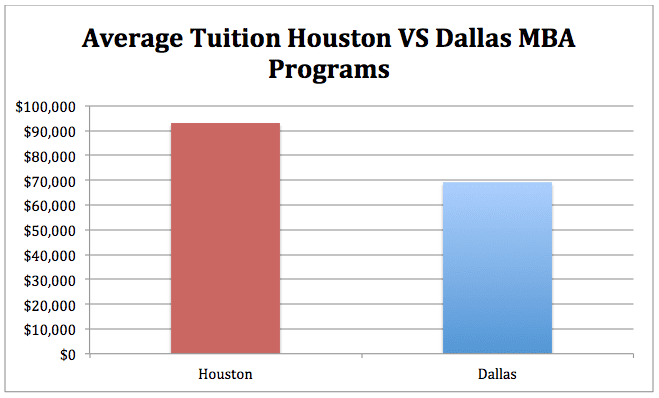
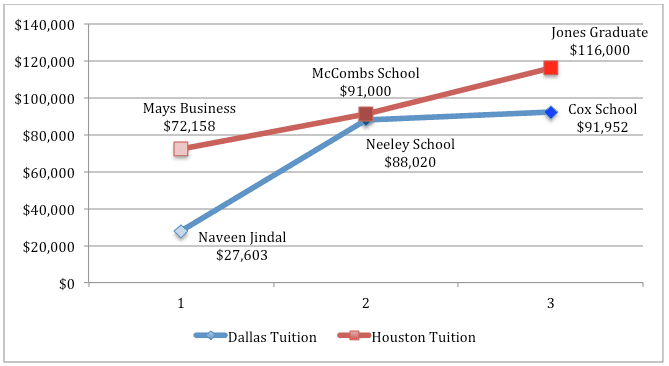
Texas MBA GMAT Averages
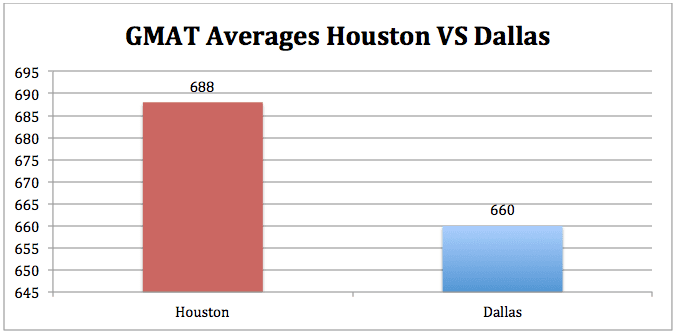
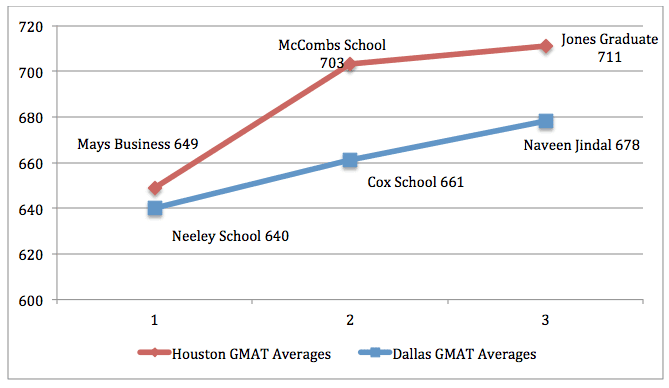
Texas MBA Post-Graduation Salaries
